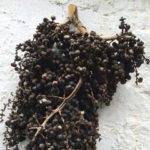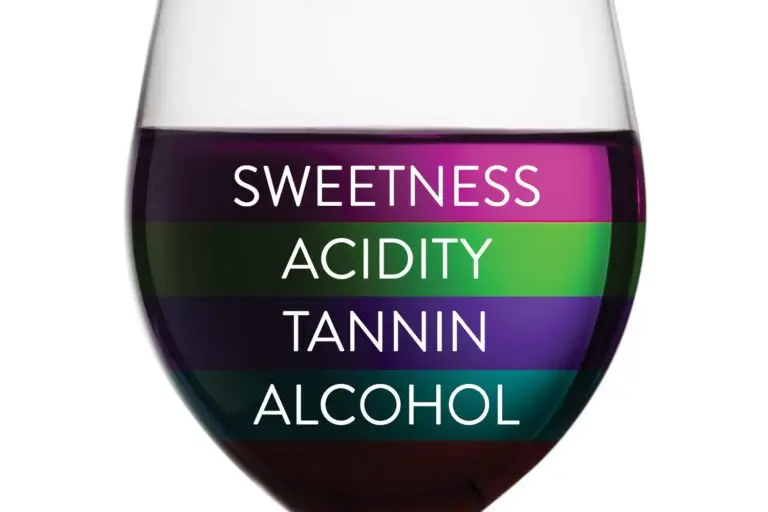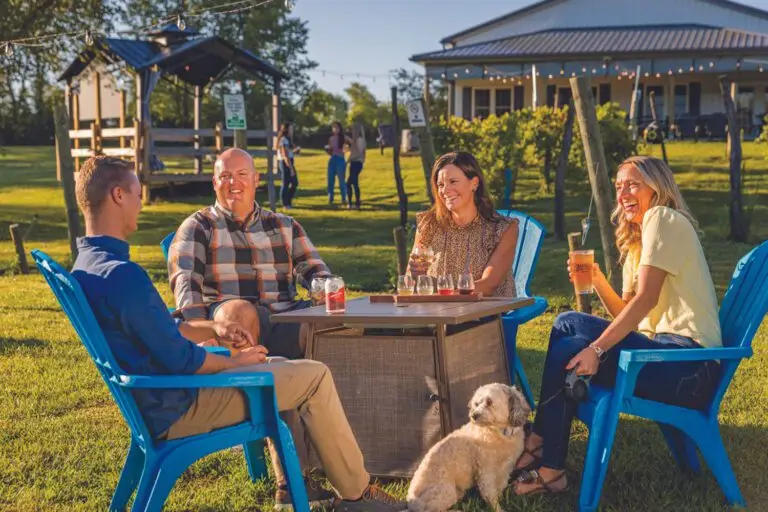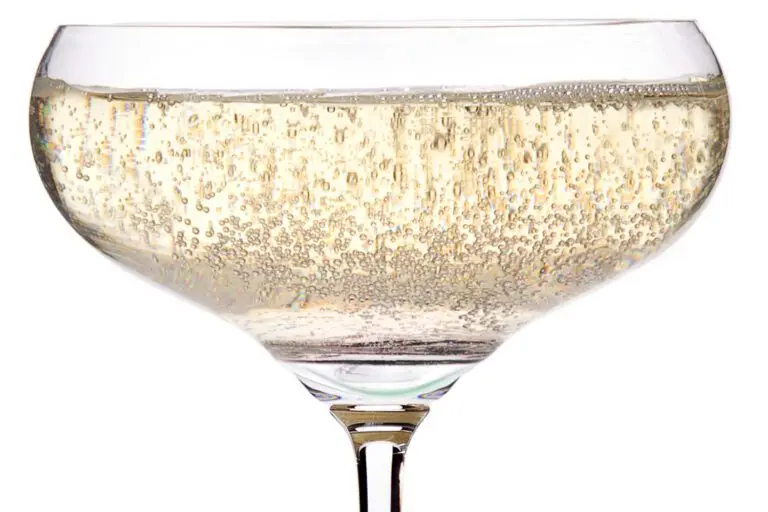by Monica M. Schultz
 It all started because I had been fighting a summer cold for a couple of weeks and finally went looking for a natural health solution. Instead, I stumbled on a chance to visit one of the most naturally healthy places on Earth – Ikaria, Greece.
It all started because I had been fighting a summer cold for a couple of weeks and finally went looking for a natural health solution. Instead, I stumbled on a chance to visit one of the most naturally healthy places on Earth – Ikaria, Greece.
Ikaria is one of the five Blue Zones – locations identified by National Geographic researchers where people enjoy extraordinary longevity with fewer chronic health issues than the rest of the world. Wine was supposed to be one of their nine “secrets” to a long, healthy life. When I discovered that Ikaria is also the birthplace of Dionysus, god of wine and grapes, I decided to go.
I didn’t have to wait long to taste my first Ikarian wine. Within an hour of landing on the island our group was seated on the beach with wine in hand. I sniffed this supposed health tonic curiously; it smelled of rosemary and berries. Made from the local variety Reteno, it tasted like cherries and honey. And it was strong. “Most Ikarians add a splash of water to their wine,” said our hostess, Thea Parikos. When in Rome – er, Ikaria – I was surprised that instead of diluting the wine, the water gave it a velvety mouth feel.
It was to be the first of many surprises about Ikaria and their wine.
For the next two hours, we passed plates of roasted vegetables, fried squid and smelt, Greek salad and a carafe of red wine while we started becoming friends. This turns out to be another secret of Ikarian wine: it’s always shared with friends. We experienced this firsthand a few days later at one of Ikaria’s famous festivals, or panagiri.
Crowded into a large room with priests, soldiers, children, well dressed women and handsome men, we were delighted to find welcoming smiles and easy communication, though most of us didn’t speak Greek. Then the wine came to the table with our food – another tradition; wine is never served without something to eat. The wine was very strong, but the people around us poured water into their glasses and ours before shouting “Ya sas!” – “to your health!”
Just as we felt we might burst from eating and drop from drinking, the music began. At first we watched with rapt attention, but before long we all joined in. We blamed the wine, but I don’t know that we would have be so easily persuaded without the wine.
Back at Thea’s Inn on the northwest side of the island, we enjoyed hours of conversation in the evenings over another Ikarian wine made from the Fokiano grape. Fokiano grows abundantly and is the basis for most homemade wine here. Rarely did we sit down to dinner with wine from a commercially labeled bottle; mostly it came from glass carafes that had been filled straight from the barrel or vat.
Fokiano is not your typical wine. It epitomizes terroir, which might deter the less adventurous, but having tasted and experienced it, I don’t think anything better describes Ikaria than this wine. Everywhere we drank it – at the beach, in the mountains, during the first winter storm of the season, in the heat of the late afternoon – the dry flavor of herbs and berries perfectly complemented the food, regardless of what we ate.
Konstantinos, a passionate and well-educated advocate for Ikarian wine, helped explain this. He walked us through the vineyards where Fokiano grows next to a local white grape, Begleri, until we came to a large stone tub called a patitiri. This patitiri is part of the traditional wine making method still used at his family’s winery, Afianes. During the harvest, family and friends crush some of the Fokiano grapes by foot. Then the must is poured into clay pots called pitharia, which are buried in the terraced ground and covered with stone slabs while the juice ferments.
The rest of the Fokiano and all the Begleri grapes ferment in stainless steel vats in the fermentation room, resulting in what the Ikarians call their “contemporary” wine.
The chilled Begleri tasted of grapefruit and mango and met with a round of toasts to our health. “When most people think of wine, they don’t usually think of Greece. The white wine helps us get the attention of the larger wine community,” Konstantinos told us, noting that in the past few years, their Begleri has received awards and ratings from Wine Advocate magazine.
Where the contemporary Fokiano was robust, the traditional wine was smooth and rich with subtle layers that seemed to unfold slowly. It is this wine that most closely resembles the wine Homer wrote about in the both the Odyssey and The Iliad, where heroes believed the wine from Ikaria had magical powers that cured illnesses and gave them strength. Having tasted it myself, that’s exactly what I would expect from this island where the god of wine was born.




